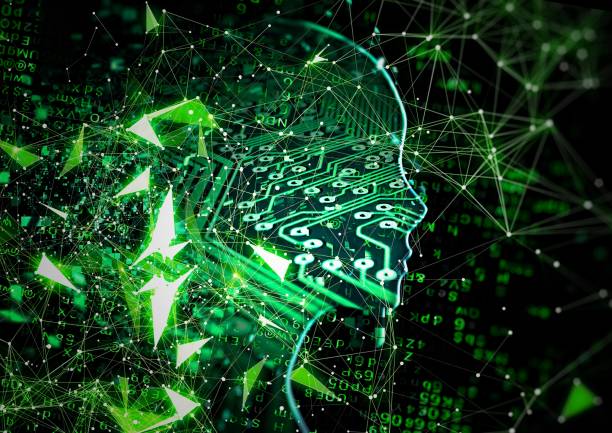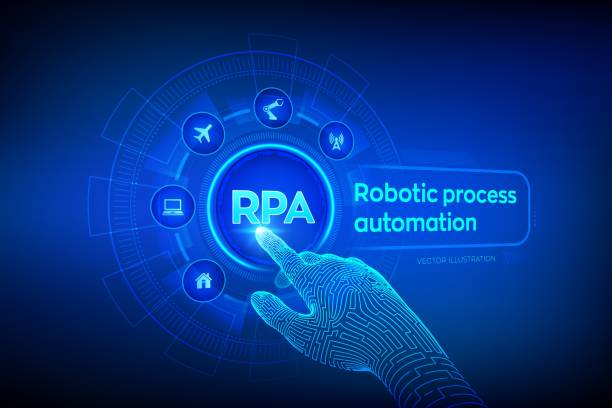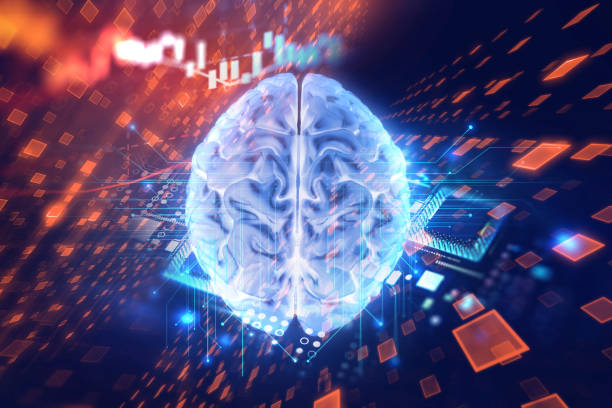What is an Artificial Intelligence Robot: Definition, History, and Types
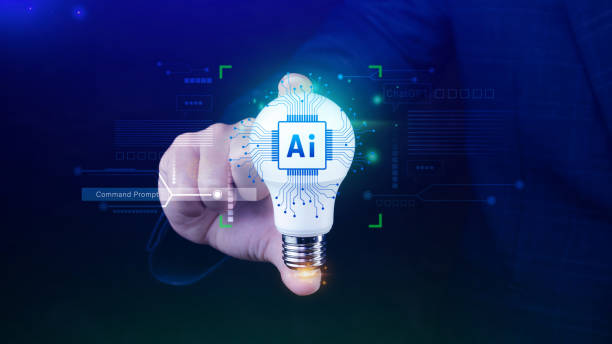
#Artificial Intelligence Robot is a combination of two important technology fields: Artificial Intelligence and robotics.
In simple terms, an artificial intelligence robot is a robot equipped with artificial intelligence algorithms and techniques that can perform tasks that require thinking, learning, and decision-making.
The history of this field dates back to the mid-twentieth century when researchers began to explore the possibility of building machines that could think and act like humans.
Since then, significant progress has been made in this field, and intelligent robots have been used in various industries, including manufacturing, medicine, and services.
There are different types of artificial intelligence robots, including industrial robots, service robots, medical robots, and military robots, each designed and built for specific purposes.
Does your current website reflect your brand’s credibility as it should? Or does it drive away potential customers?
Rasaweb, with years of experience in designing professional corporate websites, is your comprehensive solution.
✅ A modern, beautiful website that matches your brand identity
✅ Significant increase in lead generation and new customers
⚡ Contact Rasaweb now to receive free corporate website design consultation!
Main Components of an Artificial Intelligence Robot
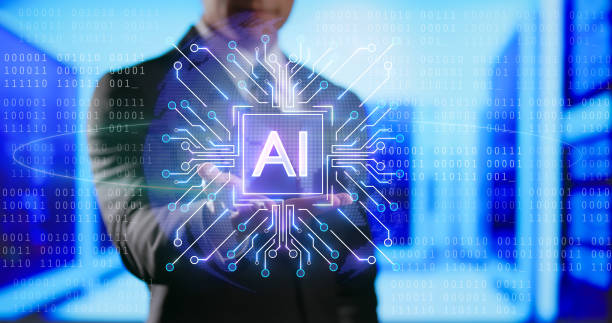
An artificial intelligence robot consists of several main parts, including: 1.
**Hardware**: Includes physical components of the robot such as the body, motors, sensors, and processors.
2.
**Software**: Includes algorithms and computer programs that implement artificial intelligence.
3.
**Sensors**: Used to collect information from the surrounding environment, such as cameras, microphones, and tactile sensors.
4.
**Processors**: Used to process collected information and make decisions.
5.
**Actuators**: Used to perform physical actions, such as motors, arms, and hands.
These components work together to allow the robot to interact with the environment and perform the desired tasks.
For example, an industrial artificial intelligence robot may use cameras to identify defective parts, processors to analyze images and make decisions, and arms to move parts.
Applications of Intelligent Robots in Various Industries
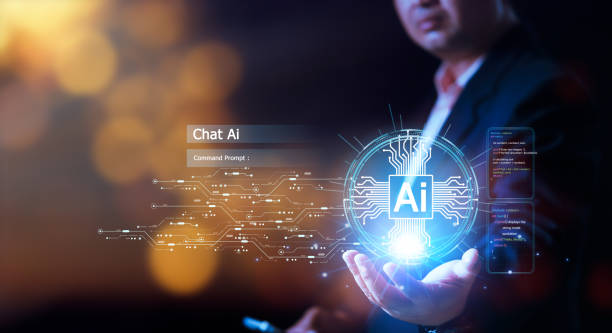
Intelligent robots have extensive applications in various industries.
In the manufacturing industry, artificial intelligence robots are used for automating production lines, quality inspection, and material handling.
In the medical industry, surgical robots help doctors perform complex operations with greater precision, and service robots help patients and nurses in hospitals.
In the agricultural industry, intelligent robots are used for planting, tending, and harvesting crops.
In the transportation industry, artificial intelligence robots are used for autonomous driving of cars and trucks.
These robots can increase productivity, reduce costs, and improve safety.
For example, in agriculture, the use of an artificial intelligence robot can help optimize water and fertilizer consumption and, as a result, increase crop yield.
| Industry | Application |
|---|---|
| Manufacturing | Automation of production lines |
| Medicine | Precise surgery |
| Agriculture | Automated planting and harvesting |
| Transportation | Autonomous driving |
Advantages and Disadvantages of Using Artificial Intelligence Robots
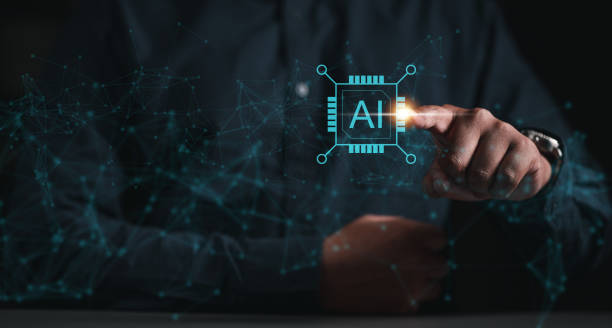
Using artificial intelligence robots has many advantages, including increased productivity, reduced costs, improved safety, and performing dangerous tasks.
However, there are also disadvantages, including high initial costs, the need for expertise for maintenance and repair, and concerns about job losses.
Robots can perform tasks that are tedious, dangerous, or difficult for humans.
For example, an artificial intelligence robot can work in stressful and dangerous environments such as mines or nuclear power plants, or perform repetitive and tedious tasks on production lines.
However, the widespread use of artificial intelligence robots can lead to a reduction in job opportunities for humans, especially in low-skill jobs.
There are also concerns about the security and privacy of information collected by robots.
Did you know that your company’s website is the first point of contact for 75% of potential customers?
Your website is the face of your brand. With Rasaweb’s corporate website design services, create an online presence that earns customer trust.
✅ Create a professional and lasting image of your brand
✅ Attract target customers and increase online credibility
⚡ Get free consultation from Rasaweb experts!
The Future of Intelligent Robots: Prospects and Challenges
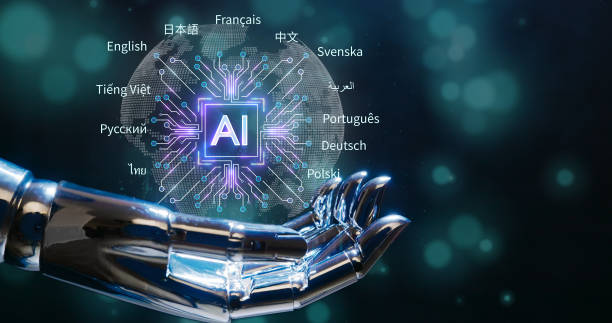
The future of intelligent robots is very bright and full of potential.
Increasing advances in artificial intelligence and robotics make it possible to build robots with more capabilities and wider applications.
It is expected that in the future, intelligent robots will play a more important role in our daily lives, including at home, at work, and in public spaces.
However, there are also challenges that need to be addressed, including ethical, security, and social issues.
For example, laws and regulations should be established for the use of artificial intelligence robots to prevent their misuse.
Attention should also be paid to issues related to job losses and the need for retraining the workforce.
The Role of Machine Learning in the Development of Artificial Intelligence Robots
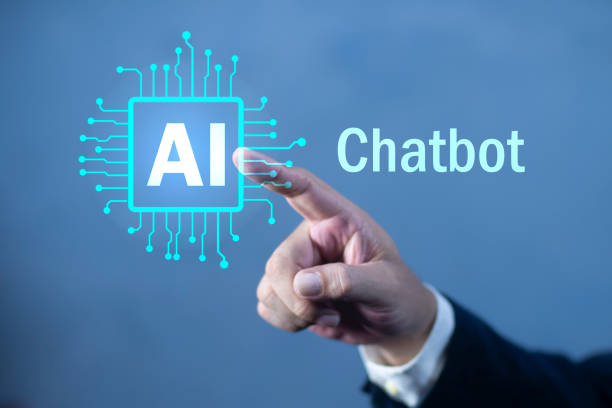
Machine learning plays a very important role in the development of artificial intelligence robots.
Machine learning algorithms allow robots to learn from data and improve their performance.
For example, an artificial intelligence robot can use machine learning to detect complex patterns in sensor data and make decisions based on them.
Or a robot can use reinforcement learning to learn new skills automatically.
Machine learning allows robots to adapt to dynamic and unpredictable environments and perform more complex tasks.
Without machine learning, robots cannot be fully intelligent and cannot learn from their experiences.
How to Program an Artificial Intelligence Robot
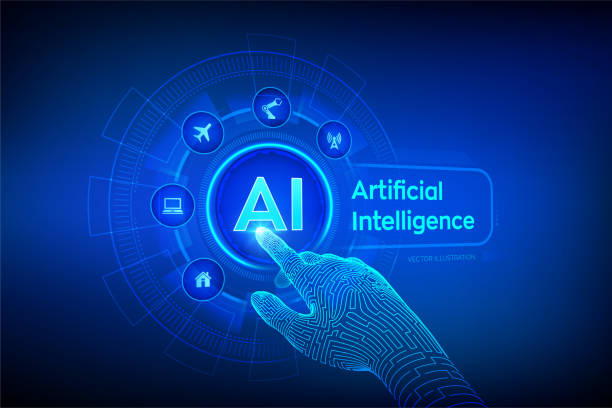
Programming an artificial intelligence robot is a complex process that requires knowledge and expertise in various fields including programming, robotics, and artificial intelligence.
First, the tasks and goals of the robot must be specified.
Then, the appropriate artificial intelligence algorithms must be selected and implemented.
Finally, the robot must be tested and its performance improved.
Different programming languages are used for programming robots, including Python, C++, and Java.
There are also various tools and libraries for developing intelligent robots, including ROS (Robot Operating System) and TensorFlow.
Programming an artificial intelligence robot requires patience and problem-solving skills.
| Programming Language | Advantages | Disadvantages |
|---|---|---|
| Python | Simplicity, extensive artificial intelligence libraries | Lower execution speed compared to C++ |
| C++ | High speed, precise control over hardware | More complexity, steeper learning curve |
| Java | High portability, support for multithreading | Lower performance than C++ in some cases |
Ethical Challenges in the Development of Artificial Intelligence Robots

The development of artificial intelligence robots brings many ethical challenges.
One of the most important of these challenges is accountability.
If an artificial intelligence robot makes a mistake or causes damage, who will be responsible? The manufacturer, the programmer, or the user? Another challenge is privacy.
Robots can collect a lot of information about us, including personal information, habits, and behaviors.
How can we prevent the misuse of this information? The third challenge is discrimination.
Artificial intelligence algorithms can be discriminatory, especially if the data used to train them is biased.
These issues must be seriously considered to prevent ethical problems.
Do you have an online store but your sales are not what you expect? Rasaweb will solve your problem forever with professional online store website design!
✅ Significant increase in conversion rates and sales
✅ Unparalleled user experience for your customers
⚡ Click to get free consultation with Rasaweb!
Security of Intelligent Robots: Protection Against Hacking and Misuse
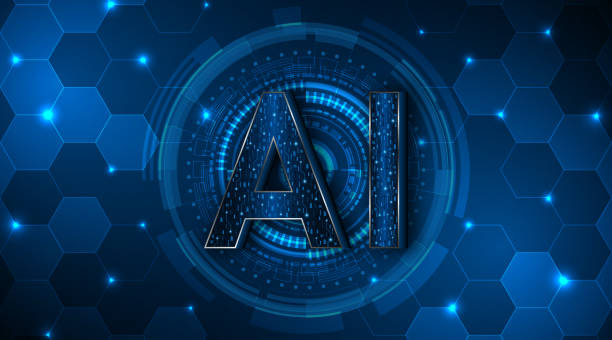
The security of intelligent robots is a very important issue.
If a robot is hacked, it can be used for malicious purposes.
Hackers can control the robot, steal its information, or instruct it to take dangerous actions.
To protect robots from hacking and misuse, various security measures must be taken, including the use of strong encryption, software updates, and monitoring robot activity.
Also, user awareness of security risks should be increased and they should be trained on how to protect their robots.
A secure artificial intelligence robot should have intrusion detection and response mechanisms for cyber attacks.
Future Outlook of Artificial Intelligence Robots in Iran

The future outlook of artificial intelligence robots in Iran shows that this field has a high potential for growth and development.
Given the country’s skilled and young workforce, artificial intelligence robots can be used in various fields including manufacturing, medicine, and agriculture.
The government and the private sector should pave the way for the advancement of this field by investing in research and development, education, and creating appropriate infrastructure.
Also, ethical, security, and social issues related to intelligent robots should be addressed and appropriate laws and regulations should be established.
With proper planning and the use of domestic capacities, Iran can become one of the leading countries in the region in the field of artificial intelligence robots.
Artificial intelligence robots in Iran can play an important role in sustainable development and improving the quality of life.
FAQ
| Question | Answer |
|---|---|
| What is an Artificial Intelligence Robot? | It is a robot that uses artificial intelligence capabilities to understand the environment, reason, learn, and make decisions to perform complex tasks independently. |
| What is the main difference between a regular robot and an Artificial Intelligence Robot? | Artificial intelligence robots can learn and adapt to their environment, while regular robots usually operate based on fixed and predetermined programming. |
| In what areas are Artificial Intelligence Robots used? | In areas such as industry (production lines), medicine (robotic surgery), services (customer support, smart vacuum cleaners), exploration (space and underwater), and entertainment. |
| How do Artificial Intelligence Robots learn? | They acquire new skills through machine learning and deep learning algorithms, by analyzing large amounts of data and identifying patterns. |
| Can Artificial Intelligence Robots have feelings? | Currently, no. They can identify or simulate emotions, but they do not have the actual experience of emotions like humans. |
| What are the most important benefits of using Artificial Intelligence Robots? | Increased productivity, reduced human error, performing dangerous or repetitive tasks, and providing innovative and efficient services. |
| What challenges exist in the development of Artificial Intelligence Robots? | The need for abundant and high-quality data, the complexity of algorithms, ethical issues, cybersecurity, and the high cost of research and development. |
| Are Artificial Intelligence Robots dangerous to humans? | No, if safe design principles and ethical regulations are followed. Concerns are more related to social and economic impacts such as changes in the labor market. |
| What is an example of an Artificial Intelligence Robot in daily life? | Smart vacuum cleaner robots (such as Roomba) that automatically map and clean the house, or smart voice assistants (such as Siri and Alexa). |
| How is the future of Artificial Intelligence Robots predicted? | They are expected to become smarter, more autonomous, and capable of more complex interaction with humans, and play a more prominent role in industry, medicine, transportation, and daily life. |
And other services of Rasa Web advertising agency in the field of advertising
Smart link building: A professional solution to increase sales with a focus on custom programming.
Smart marketplace: A professional solution to attract customers with a focus on accurate audience targeting.
Smart conversion rate optimization: A professional solution for user interaction with a focus on custom programming.
Smart brand identity: A professional solution for user interaction with a focus on custom programming.
Smart digital advertising: Transform digital branding with the help of accurate audience targeting.
And more than hundreds of other services in the field of internet advertising, advertising consulting and organizational solutions
Internet Advertising | Advertising Strategy | Advertorial Report
Resources
What is an Artificial Intelligence Robot?
,What is Artificial Intelligence (AI)?
,What is a Smart Robot?
,Applications of Artificial Intelligence (AI)
? Are you ready to transform your business in the digital world? Rasaweb Digital Marketing Agency, by providing comprehensive services including professional website design, SEO, and social media management, paves the way for your online success. Build the future of your business with us.
📍 Tehran, Mirdamad Street, next to the Central Bank, South Kazerun Alley, Ramin Alley No. 6

